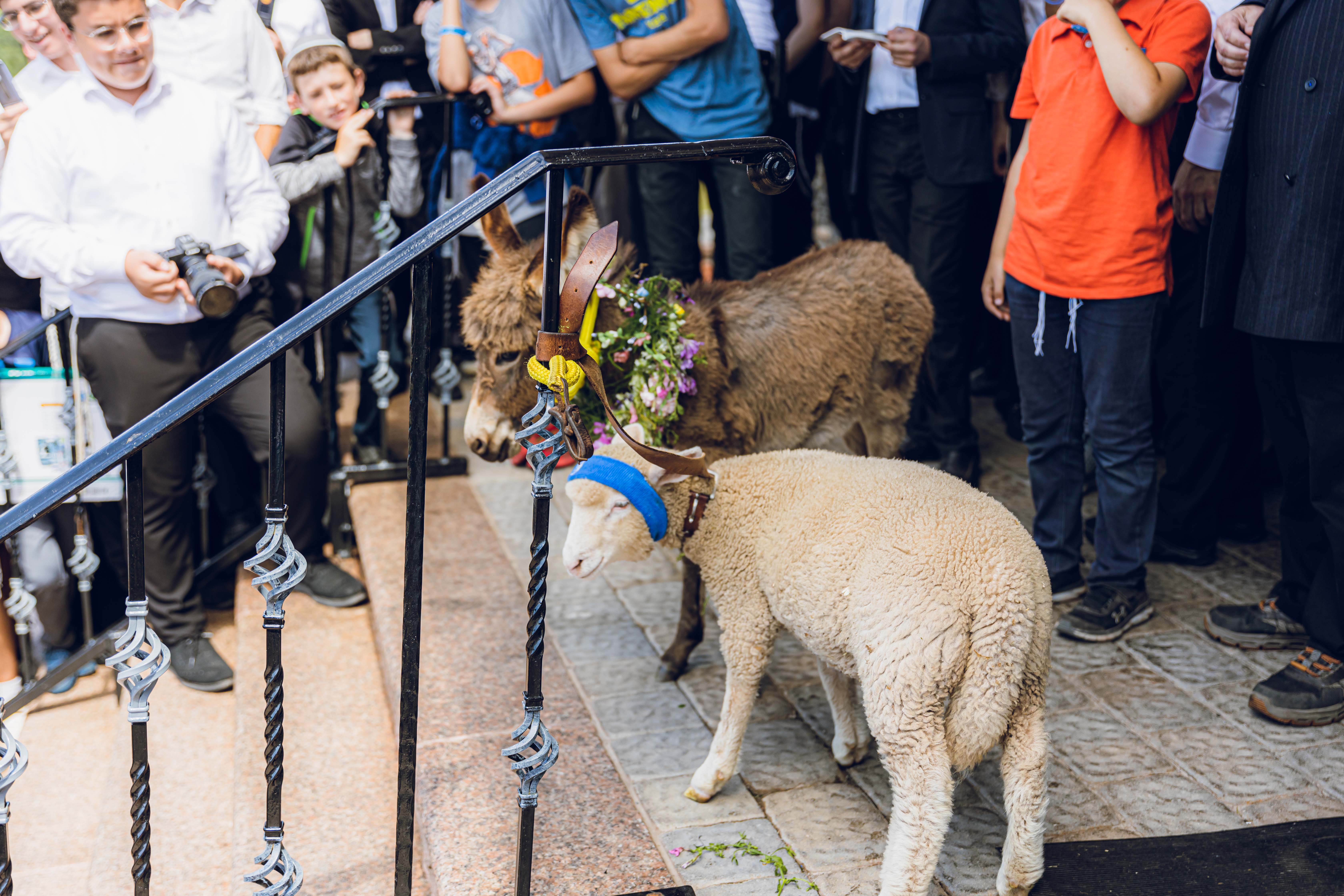Ask the Rabbi with Rabbi Chaim Mintz
What is the correct approach to raising children today? Should we focus on warmth and positivity, or on firmness and discipline? And how should we deal with a child who shows no interest in Yiddishkeit?
Rabbi Chaim Mintz responds:
Positive Jewish Parenting
The best approach is warmth and positivity, showing children the beauty of Yiddishkeit (Judaism) without pushing too hard. We want them to see a life of Torah and mitzvos as something joyful and geshmak (deeply pleasurable), not a burden filled with pressure. This will lead to genuine love for Yiddishkeit and a desire to embrace it. On the other hand, pushing too hard when they’re not ready often breeds resentment, and distances them instead of bringing them closer.
There’s another problem with pushing children too hard: Children must trust that parents want only what’s best for them and have their best interests in mind. Constantly forcing them to do things they don’t yet appreciate, just to please their parents, damages that trust. Better to be positive and warm, and over time, this positivity will pay off, as your child will come to appreciate the beauty of Yiddishkeit and recognize your genuine care.
Trust Before Pressure
Once the child trusts you and feels your warmth and care, it becomes possible to be firm when necessary. When applied correctly, a scolding or a punishment can be appropriate and effective. Because the child understands that you are acting out of love, he will be more receptive. Even a child can recognize the importance of boundaries and rules.
But the scale should always be tilted toward positivity and encouragement. As Chazal (Sanhedrin 107b) teach, “Smol dochah v’yamin mekarevet—the left (weaker) hand pushes away, while the right (stronger) hand draws close.”
Deciding when and how to discipline a child requires thoughtful consideration. There’s no universal formula, as every child and situation is unique, so each case calls for its own approach. When in doubt, seeking advice from a trusted mentor can provide valuable insights and guidance.
Keep the Door Open
There are times when a child loses interest in Yiddishkeit, something many families unfortunately struggle with.
Here too, the response should be one of love and acceptance. Create a happy, welcoming environment at home. Encourage the child to learn some Torah or join the Shabbat meals, filled with singing and warmth. Hopefully, they will enjoy the experience. But if they’re not interested in keeping certain halachot—or even anything at all—don’t pressure them. It will only push them further away.
This is especially true with teenagers, who are undergoing intense emotional and psychological changes. As they mature, their perspective on life will begin to mature as well. They will begin to realize that life is about more than just sports, food, and having a good time, and many begin to return to their roots. It might take a year, two, or even longer, but if you keep the door open and continue to show love and warmth, the odds are they will come back. It’s a “tried-and-true” approach. In fact, there have been many great rabbis who were disinterested in Yiddishkeit during their teenage years, only to return and grow into extraordinary tzaddikim.
Love Without Normalizing Violations
However, creating a loving home for one struggling child cannot come at the spiritual expense of the rest of the family. The home must remain a place where the values of Yiddishkeit are crystal clear. We cannot allow blatant disregard for mitzvos in front of the family, as this can send a harmful message and risk negatively influencing the other children, and we cannot jeopardize their ruchaniyut (spirituality) even in the slightest.
If the child is doing these things in the privacy of his own room and no one knows what he is doing, we can let it go. But if everyone in the house knows what he’s doing, the parents must consider whether this still might influence the other children, taking into account their ages, where they are spiritually, and how well the family can create an environment that clearly communicates this behavior is wrong and is only being tolerated for the sake of this child.
In short: Chinuch should be rooted in positivity and warmth, thereby fostering a positive relationship to Torah and the parents. Once established, carefully considered discipline is appropriate when necessary. For children who lose interest in Yiddishkeit, focus on love and acceptance, trusting that with time, they will mature and find their way back. But not at the expense of the other children’s spiritual wellbeing.
Written by Rabbi Aaron Shapiro
Ask the Rabbi takes place on Zoom every Tuesday at 9pm. Join us at oorah.org/asktherabbi or call in at (646) 876-9923 Meeting ID: 957 4583 3906 Passcode: 374.
To submit a question, email: asktherabbi@oorah.org


